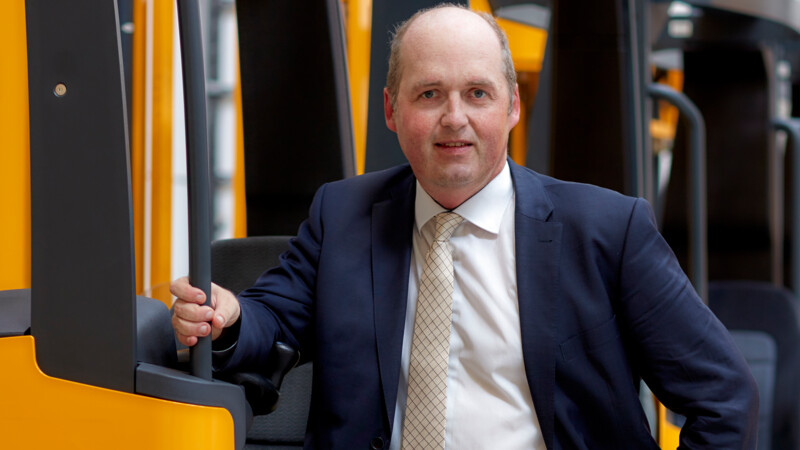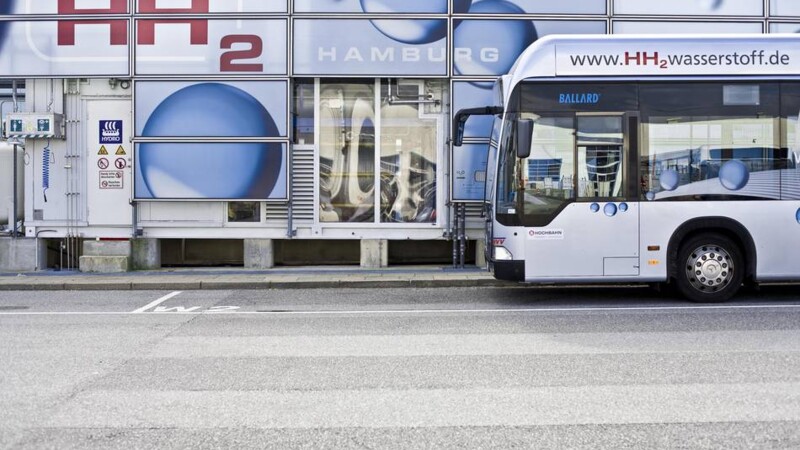The German Ministry of Transport and Digital Infrastructure (BMVI) recently approved millions in funds for a pilot project to improve the charging infrastructure in entire bus depots. The government is aiming for 1 million electric cars across Germany by 2020 and hopes to find a solution suitable for transport authorities nationwide. Such vehicles are a key part of the energy transition. In the wake of scandals relating to higher than reported diesel emissions, diesel-run vehicles may yet be banned in German cities. Now, rising interest in e-vehicles is palpable. Electric mobility is high on the agenda in Hamburg and especially since the city won it’s bid to host the Intelligent Transport Systems (ITS) World Congress in 2021. Tange remarked: “Hamburg is a pioneer of electric mobility and that was one of the reasons why we decided to set up our European headquarters in the city.”
In future, we will be charging our electric cars while we are shopping, eating pizza or watching a movie in the cinema,” said Benjamin Tange. His employer, XCharge Europe GmbH, may yet provide the charging infrastructure. Tange, 49, is Marketing and Sales Manger at XCharge Europe GmbH that opened its European headquarters in Hamburg in early January in a bid to conquer the European market. Founded in 2015 by Ray Ding and Simon Hou, XCharge develops and produces charging stations in addition to managing the software.
Tange noted: “That makes us stand out from most of our competitors.” The company already operates over 20,000 charging stations in China and as the company grows, the more know-how is gained. “Our charging stations are connected in real-time to the internet. We find out when, where and how energy is begin tanked,” he added. Meanwhile the start-up has 100 employees many of whom work in Research and Development in Beijing. “And that in the most advanced e-mobility country. Every third electric car in the world is on Chinese roads.”
Hamburg – pioneer of electric mobility
Boosting forward-looking electric mobility market
XCharge is now joining forces with automobile companies, energy providers, communities, retailers, building societies as well as the hotel and catering sector to push the forward-looking electric mobility market ahead. The company’s superfast charge is now well under 20 minutes. “Our latest products’ series for Europe provides up to 240 kilowatts in charging capacity. That is five times the average amount provided at fast charging stations in Germany,” Tange explained. And XCharge’s superfast charging stations and the required IT can be set up anywhere even “in a private garage or on a public space,” said Tange. Billing and payment is done on the operator’s app or with RFID and NFC chip cards.
Electric mobility – both sensible and fun
The growing availability of superfast charging stations will also lead to long distance e-mobility and will encourage buyers to opt for such vehicles. If more people simply try out an electric car, electric mobility would spread faster, Tange believes. Although purchase prices are still quite high, “maintenance and fuel are extremely cheap.” And there are no emissions. Rolling noise and acceleration cause the only sounds. “Electric mobility is sensible and fun!“
pb
Sources and further information
More
Similar articles

Jungheinrich treading new paths in e-mobility

Hamburg and Continental agree mobility partnership

Next19 tracking intelligent mobility
